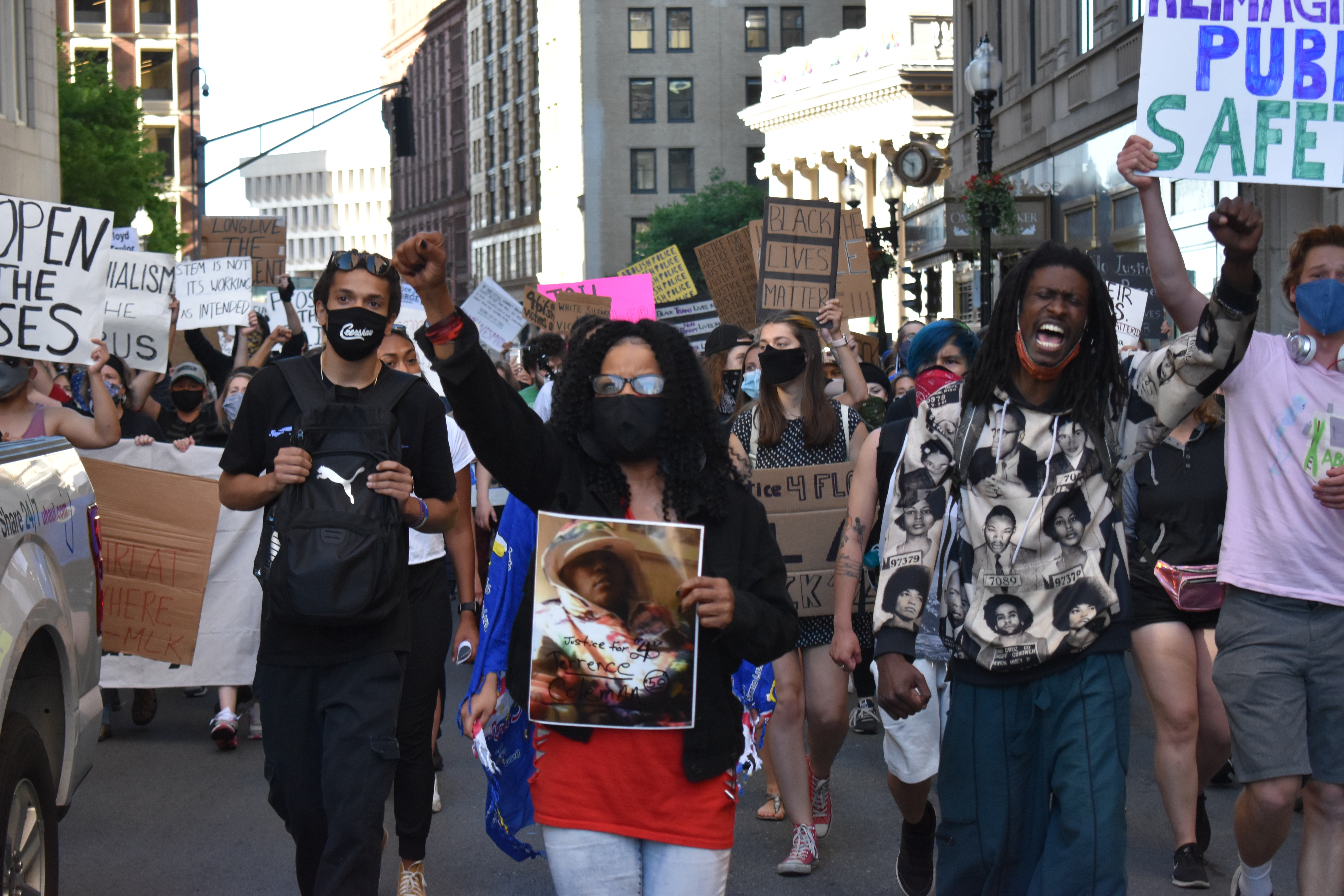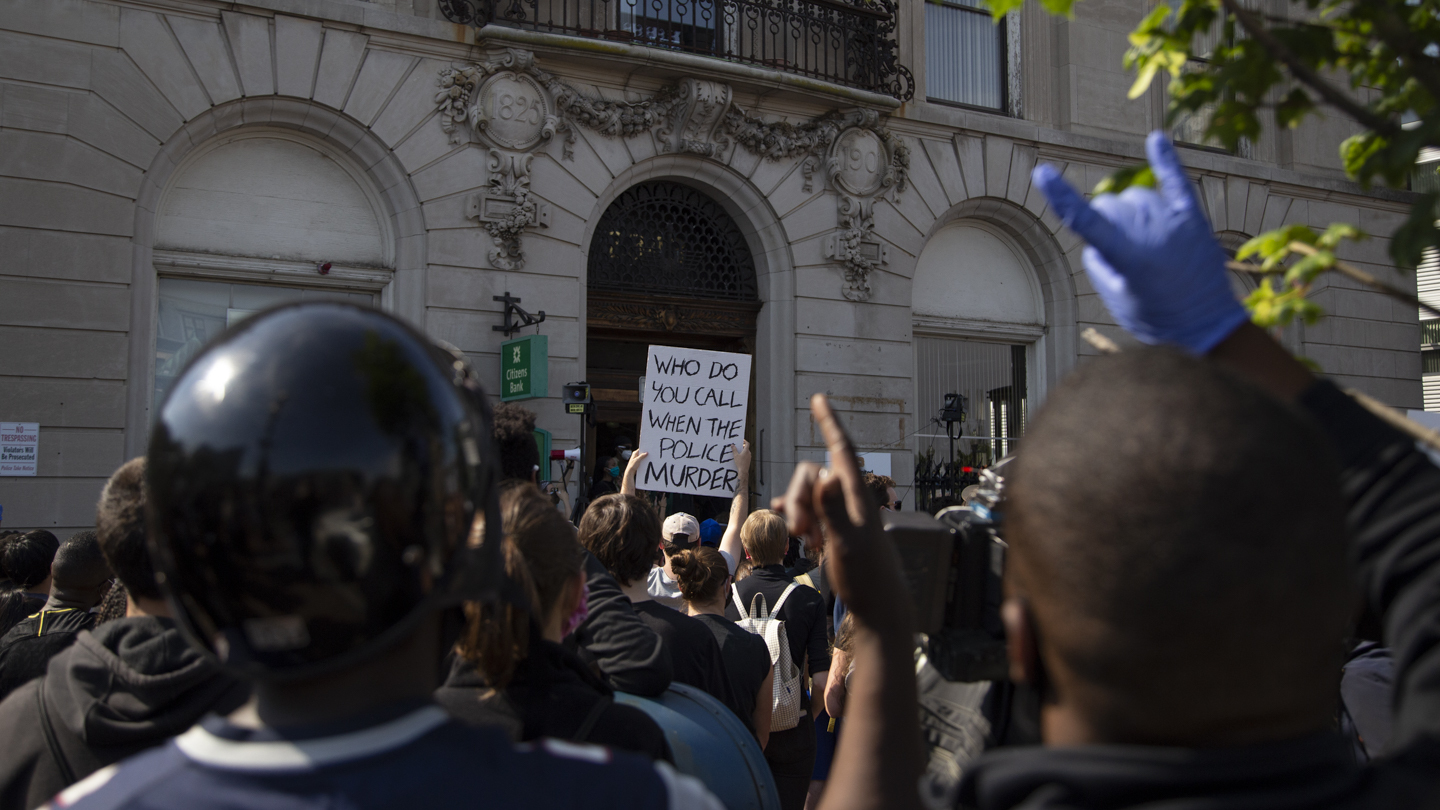Dozens of rallies, marches and vigils were held Friday in Massachusetts to mark Juneteenth, the commemoration date of the end of slavery in the United States.
The events melded celebration and reflection, coming after weeks of protests across the state denouncing structural racism and police brutality against Black people in the wake of George Floyd's death.
At a Dorchester Black Lives Matter rally honoring Juneteenth and in support of the Black community, attendees called attention to issues including mass incarceration, police reform and racism. They also called for an end to qualified immunity, which shields public officials from liability even when they break the law.
At nearby Ronan Park, Mass Action Against Police Brutality held Funk the Police - Juneteenth Edition, a musical "speak-out" and rally against police brutality and racism. Families raised money to send a delegation of mothers to the National Mother's March in Minneapolis on July 12, organizers said.
Protesters at both rallies shared their stories with NBC10 Boston, like others did over recent weeks in downtown Boston, Jamaica Plain, West Roxbury and Nubian Square. They told us about what the holiday means to them and how they learned about it, the need for racial equity, whose experience is recognized in America and more.
Black Lives Matter Rally
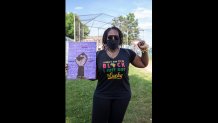
Jordan Bryant of MetroWest
"To me, Juneteenth means freedom and the opposite side of that coin, which is struggle, because for Black people — for Black decedents of slaves in the United States and around the diaspora in general, but I can speak only for decedents of slaves in the United States — freedom has never come without struggle. We still are not free. We still are not free not to be shot down by state power, by the monopoly of force that the state holds."
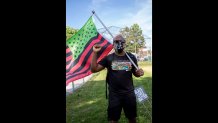
Maurice Roberson of MetroWest
"This Juneteenth, I've seen unity, I've seen support and honestly, as a young Black man in this country, I feel like I'm getting a little bit of recognition now. I feel like I'm being recognized as an American."
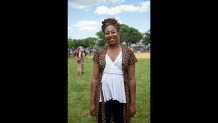
Dr. Rachel Jessica Daniel of Weymouth
"I've always celebrated [Juneteenth] and so I'm thankful that there's a larger community of people that are coming to gather together. This is the first time where I've seen so many white people be so informed and engaged and I'm thankful for their presence and for their support."
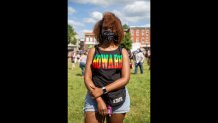
Taylor M. Lasane of East Boston
"I've been celebrating for about 10 years now but as a child growing up it just wasn't something that my parents talked about, it wasn't something that was known, and I feel like that's awful, right? I'm a Black woman, have grown up as a Black American my entire life and this day means especially a lot to people like me and I had no clue. So I think that shows a lot of issues right with our education system but also things that we, as Black people, can do to grow and learn."
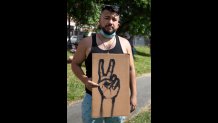
Jonathan Paz of Waltham
"I think it's time to really listen to what Black folks are saying. I don't think this is a new conversation and I actually think they're making very reasonable requests. Regardless of what people think of their tactics, I think folks at the end of the day want to see peace in the streets, they want to see peace in their homes, they want to have equal access and opportunities that other folks in our society are able to. We have a deeply racist history in this country and it's time that we amend some of those wrongs. I actually think that folks who feel threatened by this should really reconsider what they feel threatened by because this is a very humanitarian cause that the rest of the world seems to understand — that is empowerment and respect for Black life."
Funk the Police - Juneteenth Edition
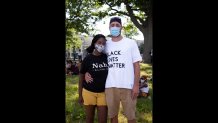
Maureen Azor and Jay Arnold of Boston
Maureen: "All we want is equality and, you know, the same freedoms that everyone else has been celebrating on the Fourth of July that we just we honestly don't have. It's about time that we get them and the only way we're going to get them is if everyone's on board so jump on board."
Jay: "I learn so much from her every single day and I have to accept that her experience is not the same as my experience was and not everybody had the same experience that I had, and I have to learn from those people, including my wife, that experienced America differently than me."
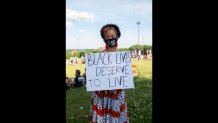
Yvonne Shinn of Canton
"Honestly, the people that just refuse to open their eyes, I just think that they're not human beings. They don't know. Like, they're just not part of humanity because if you don't want to see another human being that's just the same as you succeed, then you're not here for the right reasons."
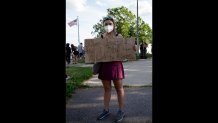
Libby HA of Westfield
"I'm out here because I want to learn. I know there's a problem, but I feel like a lot of other Americans have been kind of a silent majority. I haven't had any answers and I feel like I need to learn more before I can engage other people in conversations."
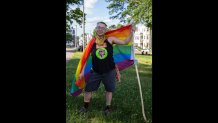
Crawford Leporo of Gloucester
"We never learned about this. You know, we never really covered the [Black] Panthers or Malcolm X or anything. It was just, you know, 'I have a dream.' And personally, I think that 'by any means necessary' is a lot more powerful."
Watch the footage from the previous parts of our project:

